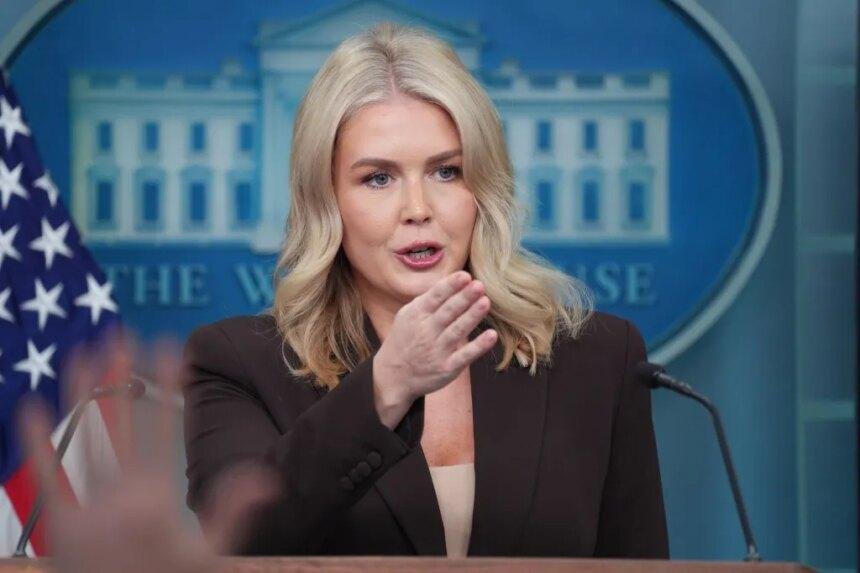White House Steps In to Protect WIC Benefits Amid Government Shutdown Threat
As the specter of a government shutdown looms, the White House has announced a strategic move to safeguard vital food assistance for approximately 7 million mothers, pregnant women, and young children. Press Secretary Karoline Leavitt revealed on Tuesday that the administration plans to utilize revenue generated from tariffs to ensure the continuity of the Women, Infants, and Children (WIC) program, which provides essential nutritional support to low-income families.
The WIC Program: A Lifeline for Vulnerable Families
The WIC program, established in 1972, has long served as a crucial safety net for families facing food insecurity. It offers financial assistance for purchasing nutritious foods, breastfeeding support, and nutrition education to families until their children reach the age of five. The program is particularly vital for low-income households, where access to healthy food options can be limited.
Leavitt emphasized the urgency of the situation, stating, “The Democrats are so cruel in their continual votes to shut down the government that they forced the WIC program for the most vulnerable women and children to run out this week.” This statement underscores the political tensions surrounding the funding of social programs amid budgetary disputes.
Tariff Revenue as a Solution
In a bid to avert a crisis, the White House has identified a “creative solution” by reallocating funds from Section 232 tariff revenues. These tariffs, initially imposed on imports for national security reasons, have generated significant revenue. Leavitt noted, “Thankfully, President Trump and the White House have identified a creative solution to transfer resources from Section 232 tariff revenue to this critical program.” This approach reflects a broader strategy of leveraging existing financial resources to address immediate needs without waiting for legislative approval.
Historical Context: Government Shutdowns and Their Impact
Government shutdowns are not new to American politics. Historically, they have often resulted from partisan disagreements over budgetary allocations and policy priorities. The last major shutdown occurred in late 2018 and early 2019, lasting 35 days and affecting hundreds of thousands of federal employees and numerous government services. During that period, many social programs faced disruptions, highlighting the fragility of safety nets during political standoffs.
The current situation echoes past crises, where vulnerable populations bore the brunt of political maneuvering. The WIC program, in particular, has faced funding challenges during previous shutdowns, raising concerns about the long-term implications for food security among low-income families.
Political Ramifications and Public Response
The announcement has sparked a range of reactions from both sides of the political aisle. Supporters of the administration argue that utilizing tariff revenue is a pragmatic solution to a pressing problem, while critics contend that it reflects a failure to reach bipartisan agreements on budgetary matters. The ongoing political discourse surrounding the shutdown has intensified, with both parties using the situation to rally their bases.
Public sentiment is also a critical factor. Many Americans are concerned about the potential impact of a government shutdown on essential services, particularly those that support vulnerable populations. The WIC program’s role in combating food insecurity has garnered widespread support, making it a focal point in discussions about government funding priorities.
The Broader Implications for Food Security
The potential disruption of the WIC program raises broader questions about food security in the United States. According to the U.S. Department of Agriculture, approximately 10.5% of American households experienced food insecurity in 2021. Programs like WIC are essential in mitigating these challenges, particularly for families with young children who require adequate nutrition for healthy development.
Experts warn that any interruption in WIC services could have long-lasting effects on child health and development. The program not only provides immediate nutritional support but also fosters long-term health outcomes by promoting healthy eating habits and access to healthcare services.
Conclusion: A Critical Moment for Policy and Compassion
As the White House navigates the complexities of budget negotiations and potential government shutdowns, the decision to utilize tariff revenue for the WIC program represents a critical moment in American policy. It highlights the ongoing struggle to balance fiscal responsibility with the moral imperative to support the most vulnerable members of society.
The administration’s commitment to ensuring that impoverished mothers and their babies do not go hungry is a testament to the importance of social safety nets in times of political strife. As discussions continue, the fate of the WIC program-and the families it serves-remains a poignant reminder of the human impact of political decisions.










